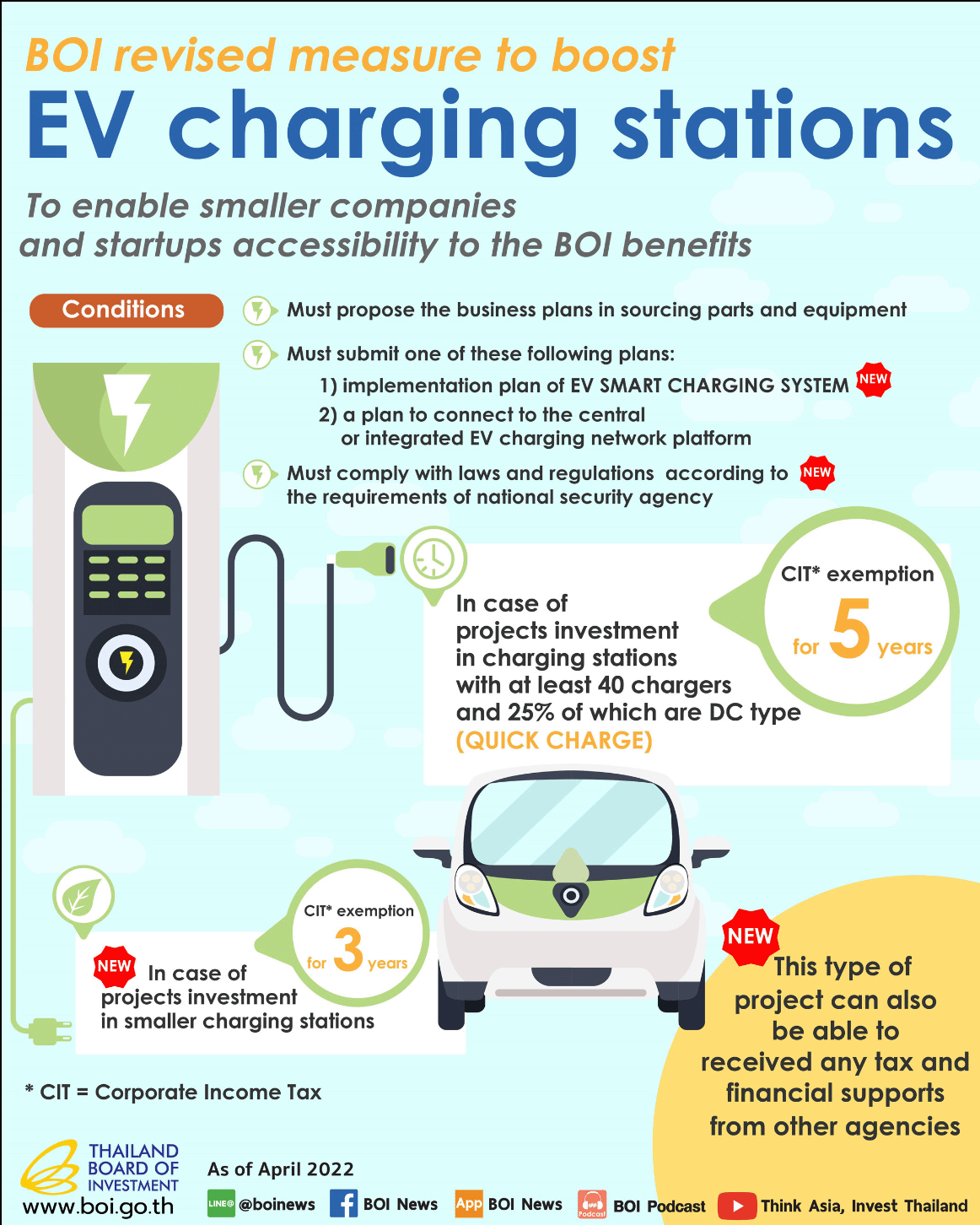Major Investments In Thailand Focus on Electronic Vehicle Manufacturing
Major Investments In Thailand Focus on Electronic Vehicle Manufacturing
The global shift to electric and sustainable vehicles is set to bring about incredible transformation for the planet and its transportation needs, and Thailand is among those leading this charge.
Thailand strives to be a global player in electric and sustainable vehicles.
The Thai government strives to become one of the largest world players in Electric Vehicles by 2030, accounting for 30% of their domestic vehicle production. Through subsidized production, import tax reductions, and other incentives, the country is creating a supportive environment for manufacturers to invest in EV production.
The Thai government started subsidizing Electronic Vehicle manufacturing in September of 2022 – granting subsidies for promoting the use of EVs as well as incentives for excise, road, and import tax reduction, production of batteries, and the establishment of charging facilities.
Thailand has an established and robust EV supply chain, making it a prime location for global manufacturers. As demand for EVs increases, Thailand is poised to be a competitive marketplace for cutting-edge technology focused on sustainability. With rising investments in Thailand coming from a wide range of local conglomerates, automobile manufacturers are positioning themselves for a strong foothold in the EV industry. Not only are they advancing the technological capabilities of their products but also taking into account the unique challenges posed by a traditional reliance on combustion engines.
Thailand is poised to be a competitive marketplace for cutting-edge technology focused on sustainability.
Thailand’s Commitment to Electric Vehicle Manufacturing
Thailand has recently made a big commitment to the production of electric vehicles (EVs), and the Thailand Board of Investment is playing a key role in promoting this initiative and working hard to create an environment that is attractive to investors and EV manufacturers alike. This effort helped create a robust supply chain for EVs in Thailand, that can handle the demands of an industry set for significant growth.
Thailand Board of Investment (BOI) is working to promote this initiative and attract investors and manufacturers to the country. The BOI has been working with major global automotive companies from China, Japan, and Europe to centralize EV production and strengthen Thailand’s position as an EV hub in the region. By promoting Thailand’s manufacturing capabilities, the BOI is gearing up to attract billions of dollars in investment, creating jobs, and helping the country to meet its sustainable development goals. They place sustainability as top-of-mind and wish to be seen as competitive in the marketplace creating cutting-edge technology to curb carbon emissions and improve fuel efficiency.
As demand for EV sales goes up and the cost to the end-user continues to go down, the Thai government hopes subsidies to manufacturers will drive more interest in centralizing EV production. There is currently a strong automotive existing ecosystem with support from Chinese, Japanese, and European EV car makers already in place, making it a safe place to invest and bet on Thailand being a central hub for EV production for years to come.
Thailand has a clear vision for the future of their automotive industry, and the government’s initiatives in supporting the production of EVs demonstrate their commitment to sustainable development. The initiatives that the government is undertaking make Thailand an attractive destination for global players and improve the country’s competitiveness in the EV space. They are looking to become a one-stop service facilitator to EV companies that want to set their regional headquarters in Thailand.
The BOI’s approach towards increasing EV usage in Thailand also takes into account supply chain and infrastructure aspects aimed to make EVs accessible and more practical across the country.
Recently, the BOI just approved a tax holiday package of three to five years for charging service providers. While Bangkok enjoys more than half of the country’s total charging stations, this tax holiday will offset that imbalance and attract investments from all corners of the country, leading to an extensive and robust infrastructure for charging EVs across Thailand and opportunities for more investments to come.
As Thailand continues to attract major global players, it is exciting to see the country’s role in the EV market increase. With the growing popularity of eco-friendly vehicles, Thailand is well on its way to turning this vision into a reality and becoming a key player in the global EV industry. Industries need more governments actively looking to increase access to EVs, and Thailand is showing us how that can be done.

Timely Topics To Drive Growth.
Sign up for our webinars.
Sign Up






